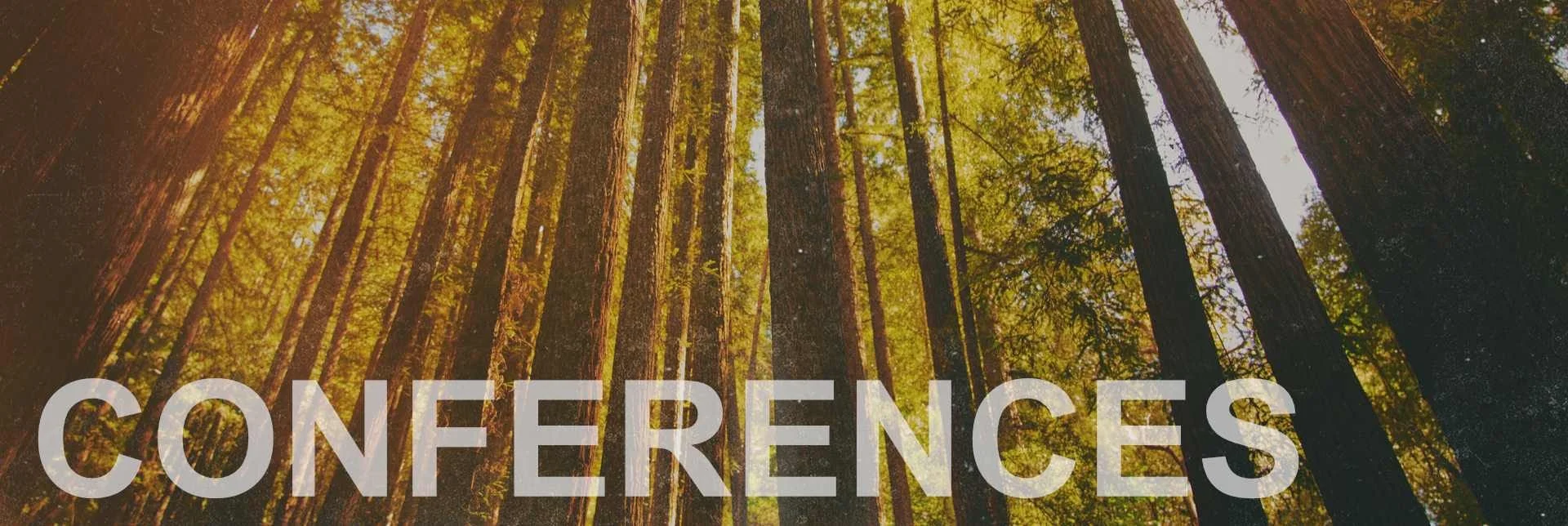Current Calls for Papers
MLA Panel 2027
Golden States: Faith, Place, and Emancipatory Narratives
Modern Language Association Session
Los Angeles, California
January 7-10, 2027
The image of California as the Golden State—a land of promise, risk, reinvention, and imagined abundance—has long shaped literary and cultural narratives of aspiration and freedom. Yet “golden states” are not bound to geography: they materialize wherever communities imagine possibility, long for deliverance, or chart pathways beyond constraint.
This panel invites papers that explore the intersections of Christian thought, literary expression, and emancipatory narratives. Using “California, the Golden State” as a conceptual springboard rather than a geographical limit, essays on any region or national literature are welcome. How do authors construct narratives of freedom, belonging, and transcendence across diverse landscapes, traditions, and textual forms? How do literary (and other) texts use place to map or gesture towards spiritual longing, human flourishing, ecological justice, or theological understandings of liberation?
Possible Areas of Inquiry:
Ecocriticism, place, and faith
Mapping, mobility, and pilgrimage
Emancipation narratives and the sacred
Reimagining “promised lands”
Prosperity narratives of extraction and abundance
Christian literary approaches to utopia, dystopia, and transformation
California as a tension-inflected site: poverty, paucity, promise, and prosperity
Embodied, communal, or indigenous experiences of liberation
We welcome works that brings a variety of literary texts from a range of traditions, including non-U.S. texts or global Christianities, into conversation with the panel theme. We encourage scholars at all stages—including graduate students—to apply.
Submission Guidelines
Please submit a 250-300 word abstract and brief bio to ppowers@messiah.edu.
Deadline: March 15
West
All Things Made New: Creation. Re-Creation. And Redemption.
Western Regional Meeting of the Conference on Christianity and Literature
California Baptist University | Riverside, CA
May 15-16, 2026
Our conference theme, “All Things Made New: Creation, Re-creation, and Redemption,” aims to explore the multifaceted dimensions of the creative and re-creative acts embedded in our discipline practices and the works we study. As a number of Christian scholars have pointed out, reading and writing literature is one way we can carry out our responsibility to establish a world that pleases and praises God by cultivating its potential. Just as Adam and Eve cultivated the fruits of the Garden of Eden, so are we to cultivate the talents and abilities God has given us in all areas: technology, literature, art, music, science, social and political structures, etc. Gallagher and Lundin state, we alone of God’s creatures are capable of creating and thinking in symbols, so we have a “natural tendency to engage in interpretation, to create narratives, and to use metaphor” (41).
Our keynote speaker, Dr. Tiffany Brooks, is the author and co-author of Fear is a Choice: Tackling Life’s Challenges with Dignity, Faith, and Determination with NFL running back James Conner (Harper, 2020); Espionage and Enslavement in the Revolution: The True Story of Robert Townsend and Elizabeth (Lyons, 2021); and, To Rebehold the Stars: Reimagining Faith and Formation After Deconstruction (Eerdmans, forthcoming March 2026). She has also written numerous articles for publications such as Smithsonian, New York Archives Magazine, and various peer-reviewed journals.
Topics of Interest: We welcome submissions on a wide range of topics, including but not limited to
· The role of creation myths and origin stories in literature
· Modern retellings of creation myths and origin stories
· Literary representations of birth, rebirth, and renewal
· The interplay between destruction and creation in dystopian and utopian narratives
· Redemption arcs in character development
· The influence of religious and philosophical ideas on themes of creation and redemption
· The impact of historical and cultural contexts on literary interpretations of these themes
· Comparative studies of creation, recreation, and redemption across different literary traditions
· Roundtable discussions on the conference theme (preferably composed of colleagues representing different schools)
· Creative works that embrace these themes
See Full CFP here.
Submission Guidelines:
Abstracts should be no more than 300 words
Presentations should fit into a 20-minute panel time slot; roundtables of 60 minutes
Please include a brief biography (100 words) with your submission.
All submissions should be sent by Apr. 1, 2026. Submission portal link: Click HERE
Information for Regional Conference Organizers
Past Regional Conferences
CCL regional conferences afford members an opportunity to learn from one another and to build networks of support for their scholarly and professional endeavors. They also offer graduate students an opportunity to gain valuable experience presenting at conferences.
For the themes of past and recent regional conferences, please click on the regions below:


